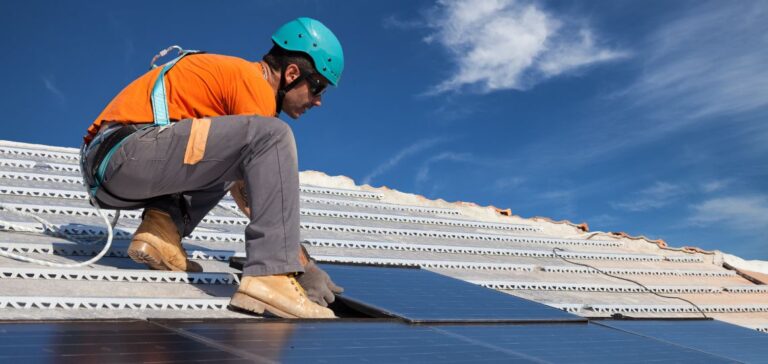The European Parliament adopted on Tuesday a bill to accelerate the energy renovation of EU buildings to achieve a “zero emission” building stock by 2050. MEPs voted to speed up energy renovation projects, as buildings account for 36% of the EU’s greenhouse gas emissions. The compromise reached between the main political groups provides that, from 2028, all new buildings must be carbon neutral. It also aims to improve the energy performance of existing buildings, to reach class E by 2030 and class D by 2033. Fossil fuel heating systems will be banned by 2035, and all new buildings will be required to have solar panels if “technically and economically feasible.”
Difficult negotiations between member states
Member States will now have to negotiate the timetable and modalities for the implementation of the law. The parliamentary project recognizes the lack of European harmonization and the variety of the real estate stock in different countries. To address this, he proposes that the letter G should de facto correspond to the bottom 15% of buildings in each state’s stock. Each State will be free to decide on incentives, restrictions and sanctions to achieve the objectives.
A rare opportunity to improve the lives of Europeans
The text’s rapporteur, Irish MEP Ciaran Cuffe (Greens), stressed that this was a rare opportunity to have a visible impact on the lives of Europeans. He explained that many Europeans are trapped in poorly insulated homes with exorbitant energy bills. He argued that the bill would reduce carbon emissions, decrease dependence on imported hydrocarbons, and stimulate jobs and industry.
The parliamentary compromise also provides an exemption for public social housing, if the renovations result in rent increases that are not offset by lower energy bills. This exemption is intended to protect the most vulnerable from rising housing costs.
Environmental NGOs welcome ambition, but worry about exemptions
Environmental NGOs have welcomed the European Parliament’s ambition for energy renovation of buildings. However, they are concerned about certain exemptions that could undermine the effectiveness of the measure. In particular, they denounced a provision adopted in parliamentary committee that opens the way to the installation of “hybrid boilers” powered in part by “green” fuels such as hydrogen and biofuels. This measure has been called a “lifeline” for fossil fuel heating by the European Environmental Bureau. Environmental NGOs fear that this will be an obstacle to the energy transition needed to meet the EU’s climate goals.
Dissenting voices
The bill was passed despite dissenting votes in the political groups. Some have complained about the cost to households and the uncertain effectiveness of the project. However, the parliamentary compromise allows states sufficient flexibility to ensure that retrofits are financially effective.





















